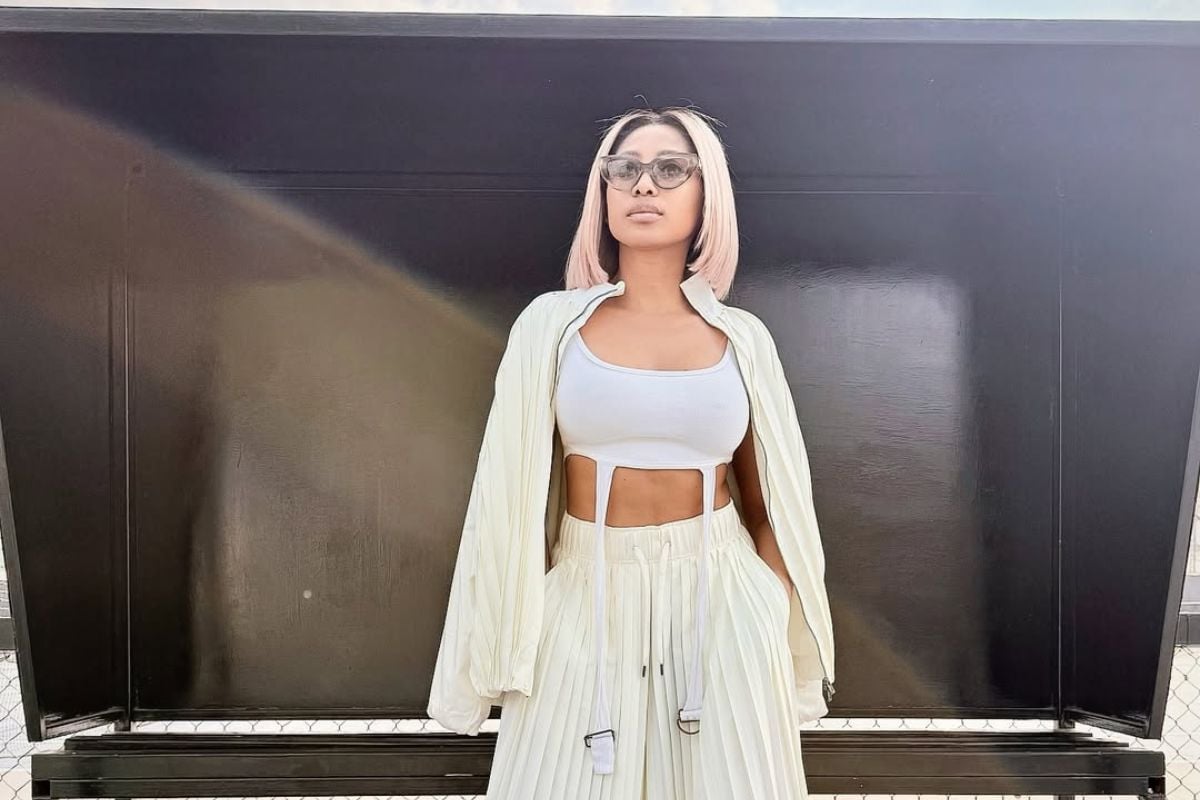"I am a black woman, and I have every right if I want to say the word,” Enhle Mbali Mlotshwa told The Citizen.

Media personality Enhle Mbali Mlotshwa says she is apologetic but does not regret using the k-word to describe her hair when announced as the face of Carlton Hair South Africa.
“I don’t have any regrets at all, but I am apologetic to those who feel offended by it,” Mlotshwa told The Citizen.
Mlotshwa’s description of her hair as ‘ka***r-hare’ has split opinions.
Some see nothing wrong with the term, as it’s still commonly used in black and coloured communities in South Africa. In contrast, others see it as derogatory because it’s a term that was used to describe black people’s hair during apartheid as a way of talking down on them.
“People will always have something to say, and once you understand that factor, nothing feels personal. I am a black woman, and I have every right if I want to say the word,” Mlotshwa said.
“For me, I am liberated, and that word means nothing to me anymore. Using it in comfort is a testament that I have conquered that journey.”
ALSO READ: How Enhle Mbali Mlotshwa approached playing a domestic violence survivor
Heightened scrutiny on black women
In the same way, some black women see their hair as symbolic crowns tied to their identity, culture, and self-expression, preferring to wear it in its natural state; for others, it’s not so deep.
It’s just one part of their appearance; hence, they have no issues in wearing weaves and wigs as their styling choice based on convenience.
Former Sonke Gender Justice programmes director, feminist spiritualist Masana Mulaudzi told The Citizen that the uproar over Mlotshwa’s comments needs to be recognised in the way black women are frequently subjected to heightened scrutiny, especially at moments of great visibility in their careers.
“This is not the first time a black woman has been put on a pedestal and celebrated either for her beauty or her talents, and only to be villainised in a moment of humanity. I think the focus on Enhle’s use of the word ‘ka***r-hare’ distracts us really from the important questions around why, in 2025, do we continue to see young black girls and black women vilified and crucified for their expression of their reality,” said Mulaudzi.
Mulaudzi, who has a multi-disciplinary background in African studies, politics, economics, international development and law, says that in conversations around social justice, this is referred to as the glass ledge.
“The glass ceiling assumes that there’s an invisible barrier above you that you can’t break through. But stories like Enhle’s or mine or many of my friends, who enjoy a lot of professional success as black women, show that we can really break through the glass ceiling because we are competent.”
“But once we are up there, we’re pushed further and further onto a glass ledge where, when we make mistakes or when we’re engaged in a political storm, or we express moments of vulnerability, the foundation beneath us is not strong enough to catch us and hold us with nuance,” said Mulaudzi.
She believes that the conversation has been entirely oversimplified, and it’s ironic that a black woman who has that very same hair texture, who, in a moment of pride for having accomplished something great, is then reduced to explaining her existence and reality because of the correction police.
Mulaudzi says there’s a difference in ‘wokeness’ informed by dignity, justice and equity.
ALSO READ: ‘Abuse is abuse,’ says Enhle Mbali after stranger threatens to leak her sexy pics
A complicated moment for a black woman
Mulaudzi calls out society for trying to simplify a complicated moment for a black woman.
She adds that there are times when black people use terminology that continues to bind them to the coloniser’s language.
This can be seen in the United States, where black Americans openly refer to themselves as ‘niggers’ but would be riled up if a caucasian used the term to describe them. Just like black Americans, Mlotshwa says she used the term in a liberatory way.
“The difference is the owner of the word now,” shares Mlotshwa.
“I do think we’re a country divided by many opinions, and my opinion is that of your question. We use the word nigga freely. And it holds the same weight. It’s a great time to have this conversation, and more than anything, I’m grateful to be the firestarter of a real conversation,” the actress says.
“I think she’s speaking her truth, and I think people are trying to police her truth by de-complicating who she is as a black woman,” Mulaudzi says.
Mulaudzi, who is passionate about social justice and feminist praxis, says she stands with Mlotshwa.
“I’m tired of black women being attacked for trivial things, but when they’re killed, there’s limited conversation about why they’re being killed and who is killing them.”
NOW READ: Thabo Bester escape: Magudumana can’t block Netflix doccie because she was paid, court hears
Support Local Journalism
Add The Citizen as a Preferred Source on Google and follow us on Google News to see more of our trusted reporting in Google News and Top Stories.








